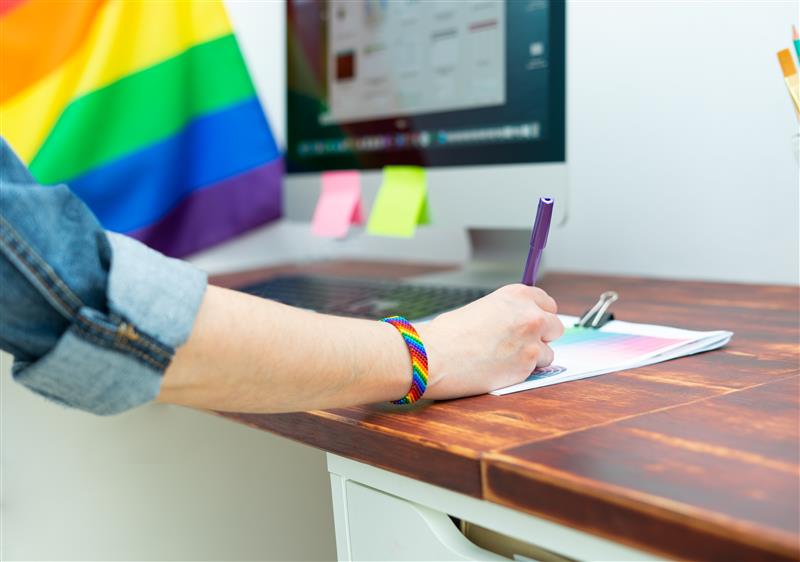It’s the kind of nightmare that could see you waking up in a cold sweat: your interviewer throws you a curveball question, and suddenly, your mind decides to take an impromptu vacation. You stumble, you fumble, and a painfully awkward silence settles in as you and your potential employer look blankly at one another, each wondering how on Earth you ended up in this comedic stand-off.
You might want the ground to open up and swallow you whole right now, but it could bring you some solace to know that this is an incredibly common experience, and that your own internal barometer can be way off the mark. So many candidates tell us they think their interviews went horribly, only to have the client call us with nothing but praise for them. The truth is, sometimes you just can’t tell. However, if you’re wondering what to do after a bad job interview, we’ve got some advice that could help you perform some damage control and start feeling more positive.
Reflect on what went wrong, and make some notes
After any awkward or embarrassing experience, it’s easy to overdramatise and turn your memories into something way more cringey than reality. In fact, you’ll find loads of stories from other people online who’ve been through something similar and were actually offered the job. So, instead of assuming the entire interview was a disaster, run through the experience again in your head and consider where problems arose. For example, was there a technical question you struggled with? A competency-based question you weren’t anticipating? Reflecting honestly on the experience will help you to improve your performance next time around, and might even reassure you the interview didn’t go as badly as you thought.
Follow up with a thank you
Repeat after us: following up with a thank you note after a job interview is always a good idea. Yes, even if you did end up spilling hot coffee in your interviewer’s lap after a fumbled handshake. And don’t just take our word for it - according to research, 63% of hiring managers look more favourably on candidates who follow up with a thank you compared to those who don’t. Aside from this, a quick note of appreciation is a good way to thank your interviewer for their time, whilst briefly giving an explanation for what you feel went wrong.
For example, if nerves got the better of you, you might say something like: “I wanted to take a moment to thank you for the opportunity to interview for the (position) at (company).I’d like to assure you that, despite my nervousness, my passion for the role and my interest in joining (company) remain strong. I have reflected on the experience, and I am committed to working on my confidence and composure in future interviews.Once again, thank you for considering me for the position. I truly value the opportunity to learn from this experience and appreciate your understanding. I hope to have the chance to demonstrate my true capabilities in the future.” Or, if you forgot to mention something major, alongside your thank you note you might also say something like: "Further to our discussion, I would just like to highlight my role as an intern at XYZ Advertising Agency. During my internship, I consistently produced engaging blog posts on a weekly basis and spearheaded a successful campaign that increased the company's Facebook followers to over 3,000. With this experience, coupled with my broader skillset, I am confident that I would excel as your new Digital Marketing Specialist."
Sending a well-thought-out note like this shows that you appreciate the interviewer's time and consideration, and demonstrates your ability to handle setbacks with grace, professionalism and self-awareness.
Be honest with your recruiter
One of the many benefits of using a recruiter is that they will often have a close relationship with the company you’re interviewing with, and can therefore be a real ally and advocate on your behalf. If your recruiter believes in your skills and knows your bad job interview performance was just a glitch, there’s a chance they’ll be able to smooth things over, and maybe even get you through to the next round of interviews for a second chance. However, your recruiter can’t do this unless you’re honest about what went wrong, so prioritise giving them quick and honest feedback. Don’t be tempted to bluff it and just pretend everything went brilliantly – your recruiter is on your side, and the more they know, the better they’ll be able to help with damage control.

Put your referees on guard
No matter how badly you think your interview went, there’s always a chance you were still more impressive than your fellow interviewees, or that it’ll be a tie between you and another candidate. Either way, it’s good sense to have a chat with your referees (if you’ve supplied their details to your recruiter or hiring manager) to prepare them. Ask them to reiterate a point that maybe you feel like you didn’t make well, or highlight something you forgot to mention altogether – that way, you’ve got an extra chance to stress to your potential employer how perfect you’d be for the job.
Keep calm and carry on
It might not seem like it now, but ultimately, having a bad interview is one of those horrible life lessons that can see you emerge a stronger person in the long run. The best way to get over this slight setback is to get right back on the horse and keep riding (that is, carry on applying for jobs and attending interviews!) Remember, one poor performance at a job interview doesn’t define who you are as a professional, nor should you allow it to leave a permanent mark on your self-esteem. To build yourself back up again, put on some of your favourite music whilst making a list of everything you’ve achieved in the past year that makes you proud – you’ll be in a more positive frame of mind before you know it.
On the search for a new role? We've hundreds of positions available in industries such as accountancy, human resources, marketing and digital, IT, and many more. Alternatively, you can search all our positions here, or register with us.




